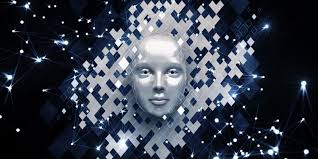Source: dqindia.com
Artificial intelligence is already impacting our lives in a major way. Be it getting driving instructions through our smartphone or getting daily reminders by our fitness device to increase our workouts, all these are manifestations of how artificial intelligence is changing the way we function. What is often less understood is the significant role artificial intelligence can play in the social sector.
Artificial intelligence can potentially help solve some of the country’s most pressing problems. As a matter of fact, it can contribute in some way or another to tackling all of the United Nation’s Sustainable Development Goals, helping large sections of the population in both developing and developed countries. AI is already being applied in a number of real-life situations, from helping blind people navigate and diagnosing cancer to identifying sexual harassment victims and helping with disaster relief. Let us take a look at critical social domains where AI can be implemented effectively.
Crisis response – Rainier Mallol, a scientist from the Dominican Republic, was successfully able to predict dengue outbreaks three months in advance with up to 81 percent accuracy after feeding statistics of previous outbreaks to an AI algorithm. This successful harnessing of big data to predict deadly diseases can remarkably change the way we address epidemics. There are a number of crisis specific challenges, such as relief response to man-made and natural disasters, especially rescue missions and disease outbreaks. AI can be applied on satellite data to predict wildfire progressions and optimize the control response. AI can be used in conjunction with drones to look for missing persons in the wilderness.
Precision agriculture – AI can help farmers analyze a variety of factors, such as temperature, weather conditions, soil conditions, and water usage, in real-time. It can be used to optimize planning and generate a more bountiful yield by determining the best crop choices and the most optimal way to utilize resources. AI has been effectively deployed to detect crop damage with the help of low-attitude sensors, from drones to smartphones, to improve the crop yield of small farms.
Educational challenges – AI can be used to maximize the achievement of students and the productivity of teachers. Adaptive teaching technologies can be used to recommend content and courses to students based on their engagement and success with past courses and material.
Environmental challenges – To sustain biodiversity and combat climate change, pollution and the degradation of natural resources. Rainforest Connection, a non-profit organization located in the Bay Area, uses AI tools like TensorFlow to conserve fragile rainforest ecosystems around the globe. By analyzing the audio-sensor data in vulnerable areas, we can successfully detect and prevent illegal logging activity.
Inclusiveness and equality – This would seem like a far-fetched connection but AI-based technology also has the potential to improve social inclusiveness and fight discriminatory tendencies by using and analyzing big data. A good case study is Affectiva, a combined effort by the media lab at MIT and the Autism Glass Project that makes use of AI to automate emotion recognition and provide helpful social cues to help people at different stages of the autism spectrum to interact better in social settings. Addressing challenges related to inclusiveness, equality, and self-determination are some of the most pertinent issues in this domain. These include reducing bias based on religion, race, sexual orientation, disabilities, and citizenship.
Healthcare– Early diagnosis of diseases is another area where AI can help for the better. Researchers at Stanford University and the University of Heidelberg have created an AI-based system for detecting diseases. They found that AI-based image processing software was able to scan images of lesions and determine whether they were cancerous more effectively than professional dermatologists. By interpreting the heart rate sensor data, wearable devices with AI-powered software can detect people prone to diabetes with up to 85 percent accuracy. If they are made more affordable, they can help over 400 million people globally.
Information validation – With the fake news epidemic growing direr by the day, we need systems to facilitate provision and validation of reliable, helpful and valuable information to the masses. We need to focus on counteracting or filtering distorted and misleading content, including false information peddled on social media, internet, and messaging applications. Malicious and false content can have severe negative consequences, from the manipulation of election results to mob lynchings. AI can contribute to this domain by presenting counteractive views to the ideologically insulated pockets across social media platforms.
Infrastructure management – AI can also help with infrastructure challenges and promote the public good in the power sector, waste and water management, real estate, urban planning, and transportation. For instance, traffic light control systems can be optimized with the help of real-time footage and Internet of Things sensors to maximize the passage of vehicles through crowded areas. AI systems can be used to schedule maintenance of public transport systems, from trains to public infrastructure, and to identify malfunctioning components.
These are just a few areas in which AI can help address important challenges. While the potential for its use is immense, scaling it up will need focus, funding and concerted efforts from the different stakeholders to work for the benefit of mankind.
